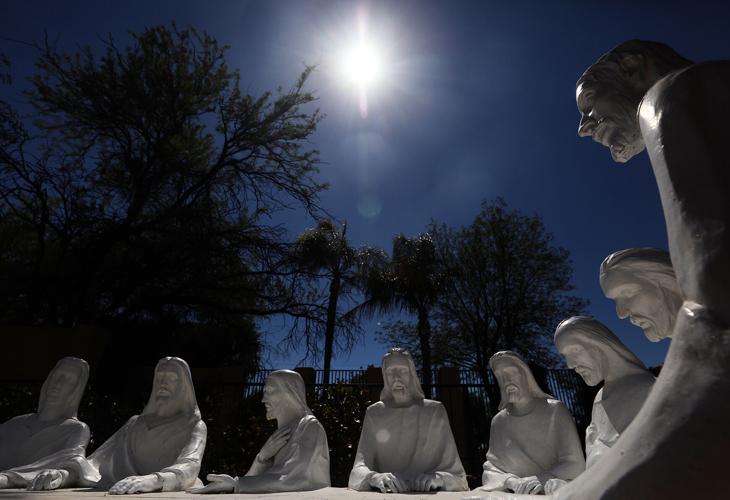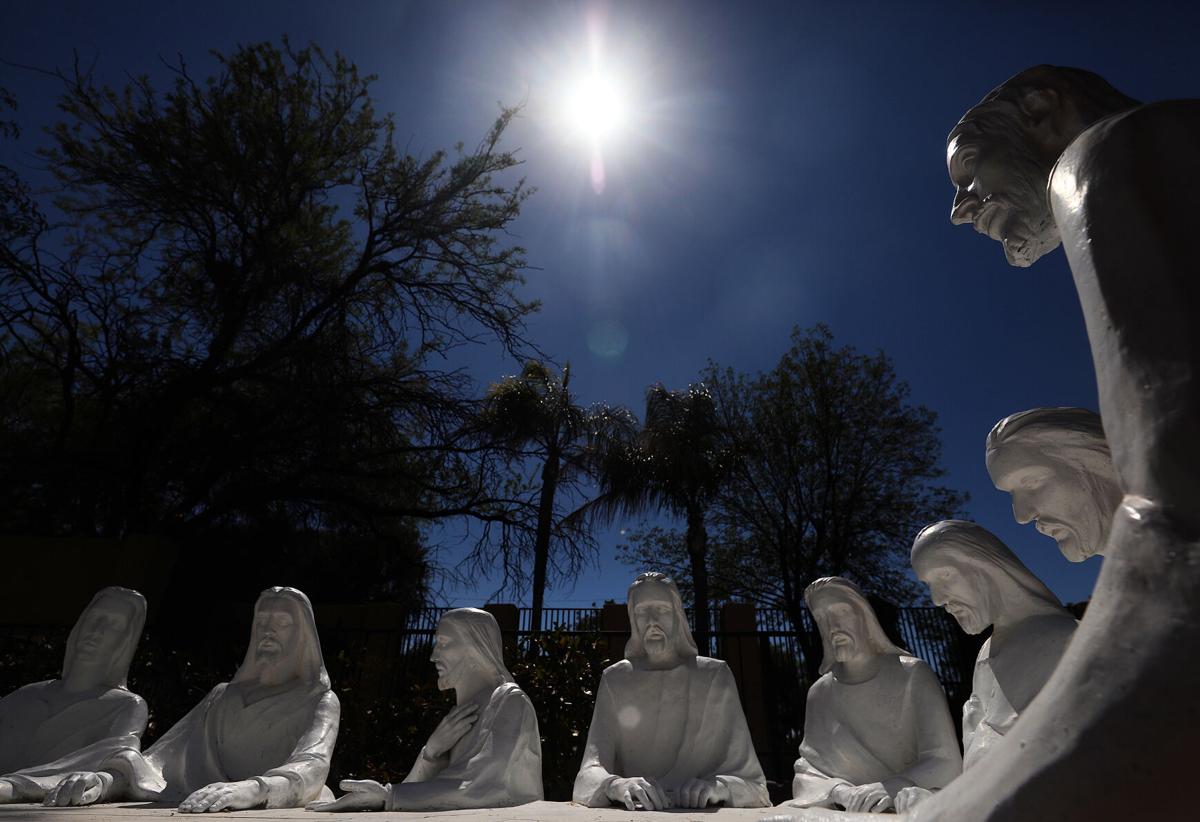It’s official: July 2023 was Tucson’s hottest month — not just its hottest July — in records going back to 1895.
The monthly average temperature of 94.2 degrees was a full 6 degrees above normal, “shattering” the previous July record of 91.5 degrees in 2020 and the 92-degree average that had made August 2020 the hottest single month, the National Weather Service says in a new report.
It was also only the second month on record here with triple-digit highs every day.
That’s right in line with the worldwide trend, as scientists calculate that the month just ended will be the hottest globally on record, the Associated Press reported.
Tucson International Airport, the city’s official recording spot, logged 2 inches of rain, which was below normal and ranks as the 61st wettest July on record.
Rainfall was below normal across most of the metro area. Those amounts ranged from a tenth of an inch to 4 inches, the report says, citing sources including rainlog.org and the Pima County Regional Flood Control District, among other gauges.
“Relentless record-setting heat, thanks to a dome of high pressure over the desert southwest, and a late starting monsoon that had several strong to severe thunderstorm days but overall was lackluster, were the main stories for the month,” says the monthly wrap-up report from the National Weather Service in Tucson.
Temperature extremes ranged from a high of 112 on July 18, 19, 20 and 25, to a low of 71 on the July 1. That means at least one record remained out of reach: The city’s hottest temperature on the books is the 117 recorded in 1990.
Among many other Tucson records set this month — even this lengthy list doesn’t really begin to cover all that were broken or tied — were:
Hottest average monthly high temperature of 108.4 degrees (old record was 105.1 in 1994).
Warmest average monthly low temperature of 80.0 (old record was 79 in 2020).
Most days with highs of 100 or hotter: 31 (topping the 28 days recorded in 1920 and 1942).
Most days with highs of 105 or more: 29 (previous record was 23 days in 1994).
Most days with highs of 110 or hotter: 14 (old record was five days in 1989).

A man uses an umbrella to shield himself from the sun as he sits on a bench along The Tucson Loop shared use path on July 27.
Most consecutive days with highs of 100 or more: 31 (old record was 22 days in 2005).
Most consecutive days with highs of 105 or hotter: 18 (old record was 16 days in 1994).
Most consecutive days with highs of 110 or hotter: 8 (old record was four days in 1995).
Most consecutive days with low temperature of 80 or warmer: 10 (old record was nine days in 2020).
Most consecutive days with low temperatures 85 or warmer: 4 (old record was two days in July 1915, July 2006, July 2007 and July 2018.
Hottest average monthly high temperature of 108.4 (topped the 105.7 record from June 1990).
For the numerous other records that were tied or broken, see the report tweeted by the National Weather Service Tucson on Tuesday, or its website at weather.gov/twc.






